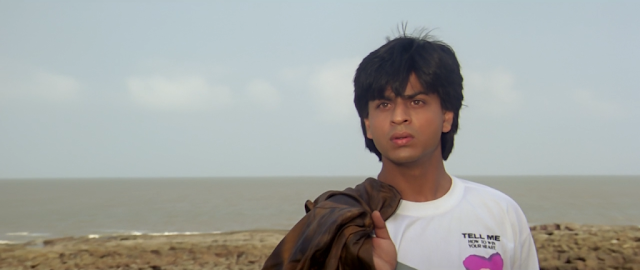Monica, O My Darling (2022) begins as it means to go on, with murder. Factory worker Dev (Shiv Chauhan) barely has time to announce his engagement to Shalu (Zayn Marie Khan) when he's attacked and killed by an industrial robot.
Six months later, Shalu's brother, brilliant engineer Jayant (Rajkummar Rao) is attending the company gala for Unicorn Robotics. Things are going well for Jayant; he's just been appointed to the board of directors, and he's engaged to Nikki (Akansha Ranjan Kapoor), daughter of Unicorn's CEO Satyanarayan (Vijay Kenkare.) He's also kind of a terrible person; he's openly dismissive of former childhood friend Gaurav (Sukant Goel) and he's having an affair with Monica (Huma Qureshi), the company secretary who is also performing a big dance number at the gala for reasons that are never explained.
After the gala, Jayant and Monica are enjoying some "alone time" when she announces that he's pregnant. She make sit clear that she's keeping the baby and that she will take care of it herself and not tell anyone who the father is, as long as she's provided with large sums of money at regular intervals.
The next day, Jayant receives an anonymous letter with incriminating photos of him and Monica, asking him to meet the sender at a sleazy hotel. Jayant assumes that it's Monica attempting to formally blackmail him, but it turns out to be Nikki's brother Nishikant, who reveals that Monica has also been blackmailing him, along with the hapless and very married accountant Arvind (Bagavatyhi Perimal). Nishikant insists that there's only one solution to all of their problems; they need to kill Monica. He pressures the other men to agree, then they draw lots to decide who will do the killing, who will transport the body, and who will dispose of it. Then Nishikant makes them sign a contract detailing the arrangement; since he's the assigned killer, he doesn't want to take the fall alone.
The plan is overly complex, involving luring Monica from Pune to Mumbai, with Jayant driving for miles in a borrowed van before taking the train back home, hopefully before Nikki has time to wake up. It's hectic, but everything seems to work until Jayant delivers the body to Arvind, who is supposed to bury it in the woods. Arvind is far too hapless to handle the job on his own so Jayant reluctantly stays to help bury Monica in the woods, but the men are chased away by a leopard.
The next day, the body is found in the woods, still wrapped in a yellow tarp, but it's not Monica's body, it's Nishikant's. Monica is apparently fine, and still cheerfully insists on being paid. But it's clear that there's something else going on; Arvind is killed by a snake someone sent in the mail, and Jayant barely escapes his own snake. People are dying, and quirky detective Naidu (Radhika Apte) is closing in on Jayant.
Jayant makes for an unusual protagonist, because he really is a terrible person. On the other hand, the audience isn't really expected to root for him, just watch in bemused fascination as he struggles to avoid his fate. Much of the time he's passively terrible, selfish and hypocritical but not actively malevolent, but he's willing to do awful things in order to protect his comfortable life. Monica is also terrible, but is more honest about what she wants and displays more agency in general, which makes her a more sympathetic character.
Monica, O My Darling is a black comedy rather than a proper film noir, but the twisty plot hangs together, and the killers (there are multiple murderers) have understandable motives. The film is deeply cynical, often funny, and surprisingly fun.
.png)
.png)
.png)
.png)
.png)
.png)
.png)
.png)
.png)
.png)
.png)
.png)
.png)
.png)
.png)
.png)
.png)
.png)
.png)
.png)
.png)
.png)
.png)
.png)
.png)
.png)
.png)
.png)
.png)
.png)
.png)
.png)
.png)
.png)
.png)
.png)
.png)
.png)
.png)
.png)
.png)
.png)
.png)
.png)
.png)
.png)
.png)
.png)
.png)
.png)
.png)
.png)
.png)
.png)
.png)